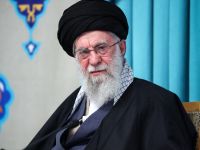Germany is a leader in energy efficiency and Oman can learn a lot from its experiences, experts said yesterday in Muscat. Energy Efficiency for Oman - The German Experience, a workshop hosted by HH Sayyid Tarik bin Shabib Al Said, patron of the Environment Society Oman, brought together interested Omanis and members of German International Cooperation (GIZ) organisation, who shared their knowledge of saving energy. "Germany is a country that's an excellent example in terms of their renewable energy. It's a model worth imitating," said Sayyid Tarik.
By introducing more renewable forms of energy such as solar and wind power, and improving the quality of building construction, Germany has become more energy efficient and is known for its state-of-the-art clean energy industry. For the past 10 years the GCC countries have consistently ranked among the top countries when it comes to carbon emissions and energy consumption because it's a region that is still expanding and developing, Sayyid Tarik said. But it's easy to identify ways to save energy and continue to grow, but in more efficient ways, he said.
"The hard work comes when we have to change our habits," Sayyid Tarik said. One of the ways that Germany has succeeded in becoming more energy efficient is by implementing policies that encourage widespread changes and make concern for the environment a mainstream, social value. "Visions can electrify people and become acceptable. This has become a movement in German society," said Nikolaus Supersberger, from GIZ. Supersberger said that there are many reasons to be energy efficient, and Germany has experienced most of them. He said it saves money, reduces environmental impacts, makes supplies more secure, and allows energy -exporting countries to increase their sales.
The importance of energy efficiency isn't just reducing carbon emission and saving the environment, said Juergen Koch, GIZ's regional director for the Gulf. In Oman, for example, a more efficient energy system would mean that less oil and gas would be needed to supply the country with power. As a result, oil and gas could be sold for profits which would help the economy. "Every barrel of oil spent on cooling systems is one you could have exported.
There's a very strong economic reason to take energy-saving policies seriously," Koch said. There are some studies underway that look at gas efficiency, renewable energy, and energy conservation as possible ways to improve energy efficiency in Oman, said Ahmed Saleh Al Jahdami, GM for policy and strategy at the Public Authority for Electricity and Water. "It will give us an overview of the country at large and where we should focus our initiatives," Al Jahdami said. In Oman, over half of the energy consumption is residential, with much of that going to air conditioning.
There are more energy efficient air conditioners and ways to improve loss of cool air through windows and doors which could prevent wasting so much energy, said Al Jahdami. "How efficient are the ACs that are coming into the country We need to scrutinise these things," he concluded.
Follow us on Facebook and on Twitter for updates that you can share with your friends.








